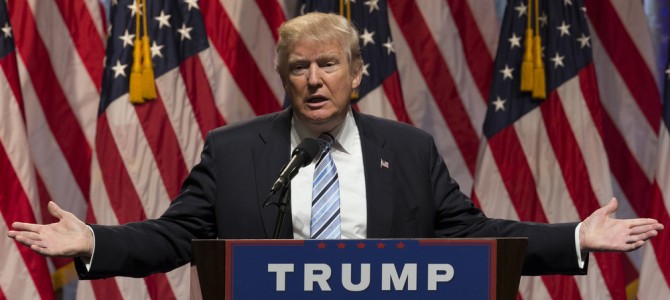
CLEVELAND – On the morning of the second day of the Republican National Convention, all anyone could talk about was Melania Trump’s allegedly plagiarized speech Monday night, passages of which matched a little too closely to Michelle Obama’s 2008 DNC speech.
Trump campaign officials and various GOP leaders spent the morning fielding questions about the relative importance of Melania’s speechwriter’s missteps. Texas Sen. John Cornyn said it was a “trivial matter.” Trump campaign chairman Paul Manafort said the controversy was a plot by Hillary Clinton to discredit Melania. New Jersey Gov. Chris Christie said it wasn’t plagiarism because “93 percent” of the speech was different than Michelle Obama’s speech.
While these important matters were being discussed, almost no one was talking about the only thing of significance that happened on the floor of the convention Monday, when an actual convention almost broke out at the RNC.
Conservative delegates from at least nine states, led by Utah Sen. Mike Lee and former Virginia Attorney General Ken Cuccinelli, submitted a request for a roll call vote on the convention rules late Monday afternoon. The rules dealt with a host of different things, including whether delegates must vote according to the results of their state’s primary. Some conservatives didn’t like the rules and wanted a roll call vote on them.
Instead of allowing the roll call vote, RNC officials called a series of voice votes that were so garbled and chaotic, no one could tell whether the “ayes” or the “nays” had it. Worse, the votes were broadcast on live TV, so everyone could see for themselves that it was impossible to tell which side was louder.
But that didn’t stop Rep. Steve Womack of Arkansas, acting as presiding officer, from declaring that the ayes had it. He then claimed that since some delegates had removed their names from the petition, there were no longer the required number of states with enough delegates requesting the roll call vote to consider it. Delegates who wanted the roll call vote were physically threatened by both security and other convention attendees, the Washington Free Beacon reports.
The GOP Is Becoming More Centralized
The entire affair was an unabashed exercise in crushing dissent within the party. It was also a moment of clarity. The next day, Lee told me it was “control for the sake of control,” and that it indicated the GOP was becoming more centralized. The central dispute in the party, he said, is between those who want to centralize power and those who want more power vested in the local grassroots.
He also said the question of who controls the party is about something bigger than Trump. It’s about what comes after Trump. “This was a different type of dispute, central versus local,” he said. “This was about the consolidation of power.”
Lee also believes something vital to the party is lost by ignoring and silencing the conservative grassroots—namely, the energy and dynamism that comes from engaged party activists at the local level. Alienating them, Lee says, is a mistake: “The people who are now being disparaged for being part of this effort are the very people Donald Trump needs if he wants to win in November. They’re the very people the Republican Party as a whole needs if it wants to win any election, whether it’s at the top of the ticket or the bottom.”
Why Should Conservatives Invest In the GOP?
The main purpose of a national political convention in the modern era is to conjure up a spectacle for the media and throw a big party celebrating their nominee. But a party facing the kinds of divisions that now beset the GOP could, if it wanted to, use the convention as an opportunity to bring its various factions together. That was precisely the opportunity the RNC missed Monday afternoon when it shut down the effort to force a roll call vote.
Delegates go to the convention to vote, after all. The irony of modern conventions is that for all the trouble that goes into staging them they don’t serve much of a purpose. If delegates are bound by the results of their state’s primary, and the nominee is already locked in before the convention, why should party activists travel to a convention and go through the motions of nominating a candidate?
Moreover, why should they invest their time and energy to make a difference in a party whose leadership doesn’t really want their input in the first place? Lee was forceful on this point:
The delegates who attend the convention in a sense are the party. They’re the governing body of the party, and they have one shot. You have people who give up time away from work, away from family, away from things they’d rather be doing in order to sacrifice on behalf of the party. They travel hundreds of miles, in many cases thousands of miles from home at their own expense in order to make a difference. Many of those people might be unheard in their homes, in their workplaces or neighborhoods. They didn’t come here to be unheard. They could be unheard anywhere else. This is their one chance to make a difference, so to come here and be silenced I think is truly tragic.
After years of fighting for influence over the party, electing Tea Party candidates and gaining ground in state legislatures across the country, conservatives came to the RNC only to be muzzled by GOP officials more interested in creating the appearance of unity around a candidate who is utterly indifferent to conservatives’ concerns and priorities.
Maybe no one wants to talk about it, but that sound you heard Monday afternoon on the floor of the RNC was the death knell of the Republican Party.









